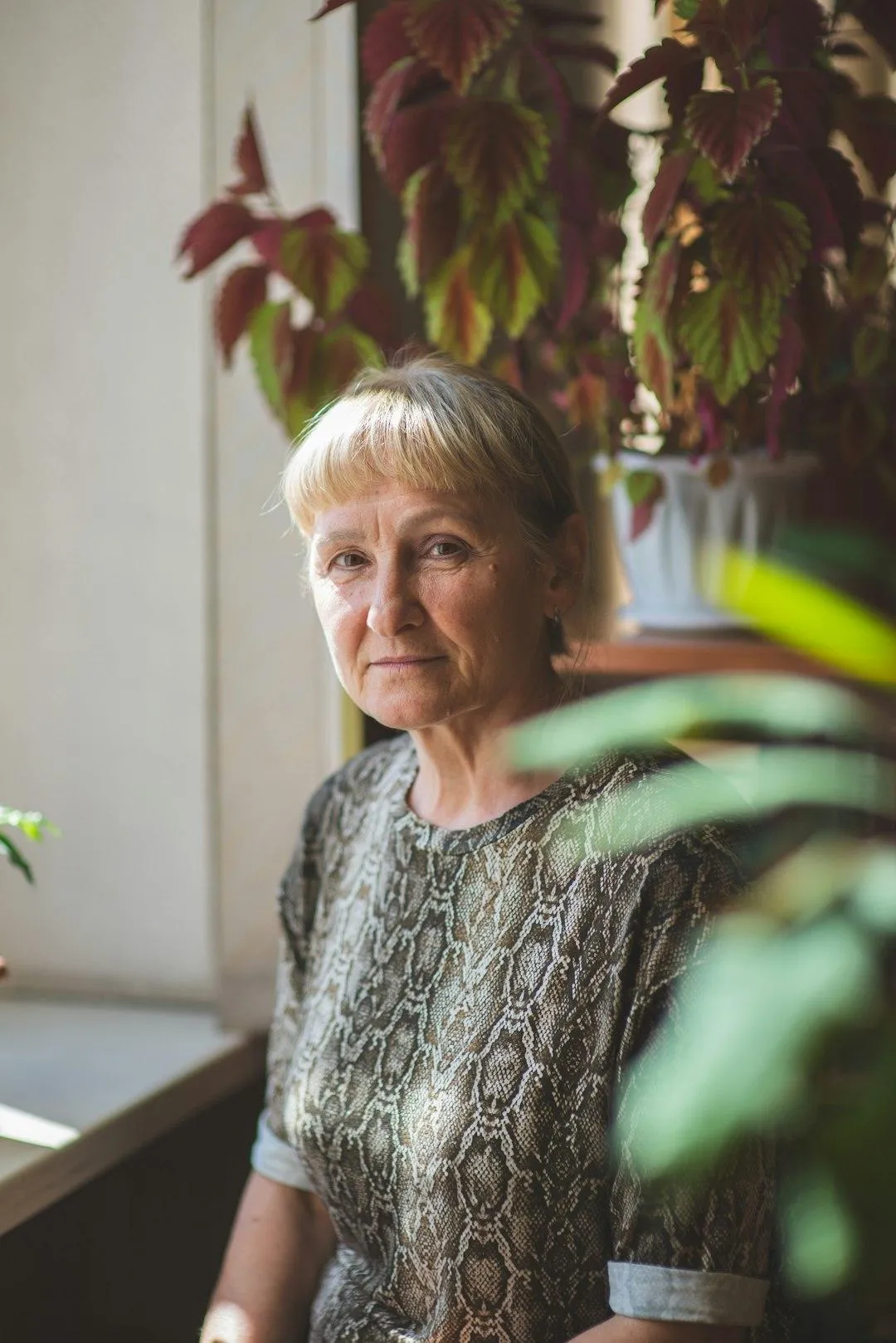Blog
COMPLIMENTARY REFERRAL SERVICE
We Help You Navigate The
Senior Living Landscape
Compare Options. Get Clarity. Save Time. Reduce Stress

Doll Therapy: Comfort & Purpose with The Grand Baby Project
Doll Therapy: Comfort & Purpose with The Grand Baby Project
Therapeutic dolls from The Grand Baby Project offer dementia patients comfort, purpose and emotional connection while reducing anxiety and agitation. These specially designed, customizable dolls tap into attachment theory and reminiscence, providing meaningful activity that can enhance mood and social interaction.
Key Takeaways
Doll therapy offers significant benefits for dementia patients, reducing anxiety, agitation, and aggressive behaviors while providing comfort and emotional connection.
The Grand Baby Project's specially designed therapeutic dolls address hygiene concerns and are customized to create deeper personal connections for individuals with dementia.
This non-pharmacological approach works through multiple psychological mechanisms including attachment theory, reminiscence, and providing a meaningful sense of purpose and responsibility.
Proper implementation of doll therapy requires respecting the individual's dignity and perception, with gentle introduction and personalized approaches for maximum benefit.
Sage Senior Support partners with The Grand Baby Project to expand access to therapeutic dolls and enhance quality of life for seniors with dementia.
How Doll Therapy Provides Comfort and Purpose for Dementia Patients
For those living with moderate to severe dementia, finding moments of peace amid confusion can be challenging. Doll therapy has emerged as a powerful non-pharmacological intervention that provides both comfort and purpose to individuals navigating the complex journey of dementia. By engaging with lifelike dolls, patients often experience a remarkable transformation in their emotional state and behavior.
Doll therapy works by providing specially designed, realistic dolls that dementia patients can interact with and care for. This seemingly simple approach taps into deep psychological needs for connection, nurturing, and meaning. When someone with dementia holds a therapeutic doll, they're not just holding an object – they're reconnecting with fundamental human experiences of caregiving and attachment.
The results can be profound. Sage Senior Support, which serves as an ambassador for The Grand Baby Project, has observed how therapeutic dolls can dramatically reduce distress behaviors in dementia patients. Many caregivers report seeing individuals who were previously agitated or withdrawn become calmer, more communicative, and visibly happier when engaged with a doll that feels real to them.
The Science Behind Doll Therapy's Effectiveness
Attachment Theory and Human Connection
At its core, doll therapy builds on attachment theory – the understanding that humans have an innate need for emotional bonds throughout life. For people with dementia, who often experience feelings of insecurity and fear, a doll can become a secure attachment figure, providing comfort during moments of distress.
This attachment response is not childish regression but rather a fundamental human need for connection that remains intact despite cognitive decline. The doll provides a tangible focus for this attachment need, helping to reduce anxiety and create feelings of security.
Triggering Positive Memories Through Reminiscence
Holding and caring for a doll often triggers powerful memories associated with caregiving roles from earlier in life. Many individuals with dementia retain long-term memories while short-term recall fades, and the sensory experience of holding a baby-like doll can activate these preserved memories.
These reminiscence experiences can bring joy and a sense of familiarity in an otherwise confusing world. As patients interact with the doll, they often share stories about their own children or caregiving experiences, creating valuable opportunities for meaningful conversation and connection with caregivers.
Creating Purpose Through Caregiving Roles
One of the most powerful aspects of doll therapy is how it provides individuals with dementia a renewed sense of purpose through caregiving. As cognitive abilities decline, people often lose meaningful roles that defined their identity. The opportunity to care for a doll reactivates the nurturing instinct and restores a sense of responsibility.
This caregiving role isn't trivial – it becomes deeply meaningful work. Patients often take their caregiving responsibilities seriously, attending to the doll's needs with dedication and focus. This engagement transforms their experience from being passive recipients of care to active caregivers with an important job to do.
The transformation can be remarkable. Family members frequently report that their loved ones who seemed withdrawn or agitated become noticeably more engaged, alert, and content when given the opportunity to care for a doll. This sense of purpose addresses a fundamental human need that persists regardless of cognitive capacity.
Sensory Stimulation and Distraction Benefits
Doll therapy provides valuable sensory stimulation through the tactile experience of holding, cuddling, and caring for the doll. The weight, texture, and warmth of a well-designed therapeutic doll create a multi-sensory experience that can be both stimulating and soothing.
This sensory engagement also serves as an effective distraction from distressing symptoms. When someone with dementia becomes focused on caring for their doll, it can redirect attention away from anxiety, hallucinations, or physical discomfort. The doll becomes a positive focal point that grounds them in a meaningful activity.
Evidence-Based Benefits of Therapeutic Dolls
Reduction in Anxiety, Agitation and Challenging Behaviors
Numerous studies have documented significant reductions in challenging behaviors when doll therapy is implemented appropriately. Research consistently shows decreases in:
Anxiety and agitation
Aggressive behaviors toward caregivers
Repetitive movements or vocalizations
Wandering and exit-seeking behaviors
Episodes of distress or crying
A particularly compelling study published in the International Journal of Geriatric Psychiatry found that participants using doll therapy showed measurable reductions in agitated and irritable behaviors. Another study observed significant decreases in wandering behaviors, which not only improved quality of life but also reduced fall risks.
These behavioral improvements may contribute to less reliance on psychotropic medications in some cases, though any medication changes should always be supervised by healthcare professionals.
Improved Mood and Emotional Well-being
Beyond behavioral changes, doll therapy consistently demonstrates positive effects on emotional states. Patients engaged with therapeutic dolls typically exhibit:
More frequent smiling and positive facial expressions
Reduced signs of depression
Increased contentment and calm
Greater emotional expressiveness
Improved sense of well-being
Research conducted at nursing facilities has documented significant improvements in mood measurements for residents participating in doll therapy programs. Family members often report seeing their loved ones appear happier and more at peace than they had in months or even years.
Enhanced Social Interaction and Communication
One of the most remarkable benefits of doll therapy is its ability to stimulate social engagement. The doll often serves as a conversation starter, encouraging interaction between the person with dementia and their caregivers or family members.
These social benefits manifest in several ways:
Increased verbal communication
More frequent initiation of conversation
Enhanced non-verbal communication through gestures and expressions
Greater willingness to engage with caregivers
More positive interactions with other residents in care settings
Caregivers report that discussing the doll often opens doors to meaningful conversations about the person's past experiences, particularly related to parenting or childcare. These moments of connection are precious for families navigating the challenges of dementia.
Potential Reduction in Medication Needs
When behavioral symptoms improve through non-pharmacological interventions like doll therapy, there may be opportunities to reassess medication needs. While psychotropic medications are sometimes necessary for symptom management, they often come with substantial side effects including increased fall risk and sedation.
Current best practices in dementia care emphasize trying non-drug interventions before or alongside pharmaceutical approaches. Doll therapy represents one such approach that may help improve quality of life while potentially reducing the need for medication in some individuals, though this should always be evaluated on a case-by-case basis by healthcare providers.
The Grand Baby Project: From Personal Story to Global Impact
Tonja Moon's Journey with Her Grandmother Ruby
The Grand Baby Project was born from a deeply personal experience. Founder Tonja Moon witnessed firsthand the transformative power of doll therapy when her grandmother Ruby Sims was battling dementia. Ruby, who had always cherished her "grandbabies," found extraordinary comfort and purpose in caring for a baby doll during her later stages of dementia.
What began as a simple attempt to provide comfort became a profound revelation as Ruby's mood, engagement, and overall well-being visibly improved when she had her "baby" to care for. The doll wasn't just a distraction – it reconnected Ruby with her identity as a nurturer and caregiver, roles that had defined much of her life.
Thoughtfully Designed Dolls for Maximum Therapeutic Benefit
The Grand Baby Project has developed therapeutic dolls with specific design features that maximize benefits while addressing practical concerns in care settings. These dolls aren't ordinary toys – they're specialized therapeutic tools created with the unique needs of dementia patients in mind.
The dolls are crafted from soft silicone, providing a pleasing tactile experience that feels natural to touch. This material choice serves multiple purposes – it's durable enough to withstand frequent handling, yet soft and comforting to hold. The silicone construction also allows for proper cleaning and sterilization, a crucial consideration in healthcare environments.
Notably, the dolls are designed without eyelashes or hair. This intentional design choice prevents "picking" behaviors that sometimes occur with dementia and significantly improves hygiene by eliminating places where bacteria might collect. These design features reflect a deep understanding of both the therapeutic goals and practical realities of dementia care.
Customization Options for Deeper Personal Connection
Recognizing that personal connection is key to effective therapy, The Grand Baby Project offers dolls in various ethnicities and genders. This customization allows caregivers to select dolls that may resonate more deeply with an individual's background and life experiences.
The benefits of customization include:
Enhanced emotional connection when the doll resembles familiar characteristics
More meaningful reminiscence triggered by culturally familiar features
Increased likelihood of engagement and acceptance
Opportunities for more personalized, culturally sensitive care
Respect for the individual's identity and life history
5 Best Practices for Implementing Doll Therapy Effectively
1. Assess Individual Suitability and Preferences
Effective doll therapy begins with careful assessment of whether it's appropriate for a specific individual. Not everyone with dementia will respond positively to doll therapy, and forcing the approach could cause distress rather than comfort.
Considerations for assessment include:
The person's past roles and feelings about caregiving
Any history of trauma related to children or parenting
Current cognitive state and ability to interact safely with the doll
Personal preferences and cultural background
Gender considerations and what might feel most natural
Involving family members in this assessment process can provide valuable insights into the person's history and whether doll therapy might be meaningful for them. Their input helps ensure the approach honors the individual's life story and values.
2. Introduce Dolls Gently and Respectfully
The introduction of a therapeutic doll should be done with sensitivity and respect for the individual's dignity. Rather than simply handing someone a doll, successful implementation often involves:
Creating a calm, comfortable environment for the introduction
Allowing the person to notice the doll naturally without pressure
Demonstrating gentle interaction with the doll first
Following the person's lead in how they wish to engage
Never forcing interaction if the person shows disinterest
The initial introduction sets the tone for the therapeutic relationship. When done respectfully, it honors the person's autonomy and creates space for them to engage on their own terms.
3. Respect the Person's Perception of the Doll
Perhaps the most important ethical principle in doll therapy is respecting how the person perceives the doll. Some individuals will recognize it as a doll and enjoy it as such, while others may perceive it as a real baby. Neither perception is wrong.
Guidelines for respecting perception include:
Following the person's lead in how they refer to the doll
Never contradicting their perception or "correcting" them
Maintaining consistency in how staff and family members approach the doll
Avoiding situations that might cause confusion or distress
Focusing on the emotional truth of the interaction rather than factual reality
This approach prioritizes emotional well-being over rigid adherence to objective reality, recognizing that for someone with dementia, the emotional experience is what matters most.
4. Involve and Educate Family Members
Family involvement is crucial for successful doll therapy implementation. Family members may initially have concerns about the approach, particularly fears that it might infantilize their loved one or seem undignified.
Effective family education includes:
Explaining the therapeutic benefits with research evidence
Addressing concerns about dignity and infantilization directly
Sharing success stories and examples of positive outcomes
Demonstrating proper implementation techniques
Involving them in the customization and introduction process
When families understand the purpose and benefits of doll therapy, they often become its strongest advocates, recognizing the joy and purpose it brings to their loved one's life.
5. Maintain Proper Hygiene and Care Protocols
Practical considerations around hygiene and maintenance are essential for safe, effective doll therapy. The Grand Baby Project dolls are specifically designed for easier cleaning, but proper protocols must still be followed:
Establish regular cleaning schedules for the dolls
Use appropriate sanitizing methods that won't damage the doll
Have a replacement doll available during cleaning
Address any damage or wear promptly
Train all staff on proper handling and hygiene procedures
These practical considerations ensure the therapy remains safe and beneficial while minimizing any potential health concerns in care environments.
The Sage Senior Support Partnership: Expanding Access and Awareness
Sage Senior Support has embraced an important role as an ambassador for The Grand Baby Project, helping to expand access to therapeutic dolls and educate communities about their benefits. This partnership represents a meaningful commitment to improving quality of life for seniors with dementia.
As a trusted advocate in senior care, Sage Senior Support brings valuable credibility and reach to the mission of promoting doll therapy as a compassionate, effective intervention. Their involvement helps connect more families and care facilities with these specialized therapeutic tools while providing education about best practices for implementation.
Through this collaboration, both organizations work toward a shared vision of more humane, person-centered dementia care that prioritizes emotional well-being alongside physical needs. The partnership demonstrates how different organizations can combine strengths to address the complex challenges of dementia care more effectively.
Giving the Gift of Purpose Through Therapeutic Connection
Doll therapy represents a profound shift in how we approach dementia care – moving beyond medication and basic physical needs to honor the emotional and psychological needs that make us human. Through thoughtfully designed therapeutic dolls and proper implementation techniques, individuals with dementia can experience comfort, purpose, and meaningful connection despite cognitive decline.
The work of organizations like The Grand Baby Project and Sage Senior Support demonstrates that even as memory fades, the capacity for emotional connection and the need for purpose remain. These fundamental human needs don't disappear with a dementia diagnosis, and doll therapy offers a compassionate way to fulfill them.
For families navigating the difficult journey of dementia, therapeutic dolls can provide not just symptom management but moments of genuine joy and connection with their loved ones. These precious interactions remind us that even in the later stages of dementia, opportunities for meaningful engagement and improved quality of life remain.
Sage Senior Support provides expert guidance on doll therapy and other compassionate approaches to enhance quality of life for seniors with dementia.
A FREE RESOURCE FOR YOU AND YOUR FAMILY
Expert Unbiased Advice
At No Cost To You
Check out this "Ask The Expert" Session with Logan Hassinger of Sage Senior Support
TESTIMONIALS
What our clients are saying
Providing The Best Holistic
Approach to Senior Transitions
By using our websites and any content you agree to the terms of use and will not hold Sage Senior Support responsible for any results or lack thereof.



Facebook
Instagram
LinkedIn
Youtube
TikTok